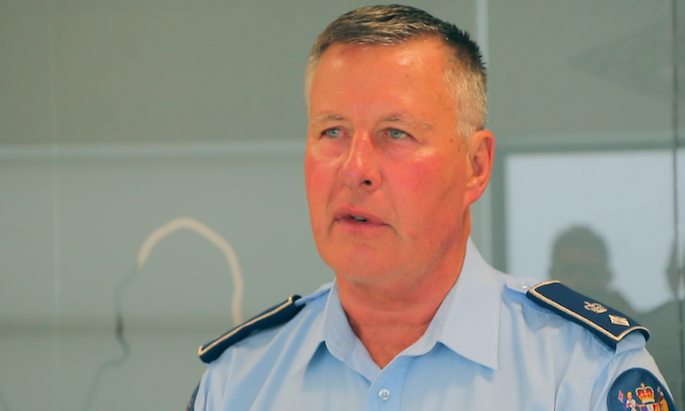The Independent Police Conduct Authority is standing by its ruling that a police officer was justified in shooting a Bay of Plenty man in 2016.
On July 6, 2017, the IPCA published its independent investigation into police's fatal shooting of Shargin Stephens, which occurred on July 14, 2016, in Rotorua.
The investigation found that a police officer was legally justified in fatally shooting Shargin Stephens after he threatened police and members of the public with a long-handled slasher.
In June 2021, the authority started a review of its investigation after issues were raised in the media and by representatives of Mr Stephens' family.
In a statement released today, the IPCA says 'the review findings have been incorporated into a new report containing our full analysis and findings, some of which are new or different from the original 2017 report”.
'The main finding is unchanged, namely that the police officer was justified in shooting at Mr Stephens in defence of himself and members of the public.”
Mr Stephens' family and media alleged that camera footage of an officer's Taser had been manipulated by police to remove a vital section covering the shooting.
'We are satisfied there is no missing footage. There are seven seconds which are not captured on the Taser camera, most likely due to a common technical fault in the apparatus.”
At the time of this incident, Stephens was on electronically monitored bail at his home. Police still regularly checked him for other bail conditions, namely not to consume alcohol or drugs.
Police records show Stephens was checked 70 times over 38 days, often on multiple occasions each day and overnight.
There are no records of Stephens breaching his bail conditions. His family complained about the frequency of the bail checks.
'Our review has found that the number and frequency of bail checks was excessive and unreasonable in the circumstances,” says authority chair Judge Colin Doherty.
'There was no reason for police to check Stephens at his house as he was being electronically monitored, and there was no evidence he was breaching his bail conditions.
'At the time of this incident there were no guidelines or expectations in police policy or practice setting out the expected or reasonable frequency of bail checks.
'Crucially there was (and still is) no oversight or supervision of the frequency or reasonableness of bail checking.
'The unreasonable and oppressive frequency of bail checking may have contributed to Mr Stephens' views of Police and the actions he took on July 14, 2016.
'However, the fact that unreasonable Police prior actions probably contributed to events does not justify Stephens' specific actions at the time.”
The Authority has recommended that Police undertake a fundamental review of all aspects of bail checking, making specific provisions for:
• Clear ownership of bail policy, practice, and procedure within Police, both at District and National levels, including development of a deployment model for bail checking.
• Guidance to officers of what constitutes reasonable bail checks (in terms of content, timing, and frequency).
• An appropriate mechanism for oversight of bail checks being undertaken at a frontline, district, and national level.
• Clarity of purpose of Police bail checks when a person is on electronically monitored bail.
• Criteria set out for how offenders are prioritised for checking.
In response to the IPCA's review, Bay of Plenty Police District Commander Superintendent Andy McGregor says no officer ever wants to shoot someone, and this is the last outcome anyone wanted.
 Bay of Plenty Police District Commander Superintendent Andy McGregor.
Bay of Plenty Police District Commander Superintendent Andy McGregor.
'When an officer uses force to protect themselves or others, it is a tactical decision made after risk assessing the threat, the exposure to harm being faced, the necessity to act, and the best response considering all those factors.
'Staff made repeated efforts to stop Stephens and de-escalate the situation but were unsuccessful.”
Andy says police acknowledge the ICPA's findings that there was no missing footage, and that the number and frequency of bail checks was excessive and unreasonable.
He dismisses any allegations that police purposefully manipulated footage of the event.
'Police recognises that use of force is a significant power granted to us and we police with the consent of the public.
'Our staff are deeply affected by these incidents, and I want to commend the professionalism of staff who responded to this incident which, as the authority notes was fast paced and took place in a busy urban environment.
'A review of our bail check processes has begun as per the IPCA's recommendations.”



0 comments
Leave a Comment
You must be logged in to make a comment.